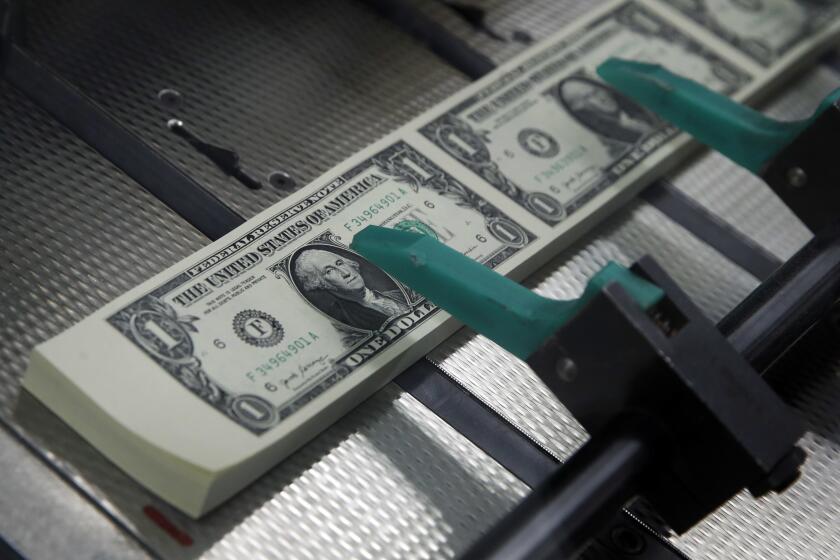Exec who shaped MTV Networks for decades steps down
One of television’s most influential figures, Judy McGrath, chairwoman of the sprawling MTV Networks group, is leaving the company after spending three decades shaping MTV into a cultural and financial force.
McGrath’s decision to step down — effective immediately — was announced Thursday by parent company Viacom Inc. Her departure marks the end of an era for MTV and further consolidates the power of Viacom Chief Executive Philippe Dauman, who will take a more hands-on role in the media empire’s most profitable businesses.
It also completes a wholesale shift in management style at Viacom, away from the maverick and bohemian personalities of McGrath and her former boss and MTV architect Tom Freston, to the more lawyerly and stiff-collar Dauman.
Viacom said the decision to leave was McGrath’s and that a successor would not be named. MTV Networks’ top three executives will report to Dauman.
Since 2004, McGrath and her team programmed some of the industry’s most dominant cable channels — including MTV, Nickelodeon and Comedy Central — homes for such resonant hits as “Jersey Shore,” “SpongeBob SquarePants,” “South Park” and “The Daily Show with Jon Stewart.”
McGrath, 58, began her career as a copywriter at MTV in 1981. She rose through the ranks to take on pivotal roles, helping to mold the network into a phenomenon that has defined youth culture for decades.
Although she possessed a passion for music, McGrath steered MTV away from music videos when they failed to generate ratings. In many ways, she helped give birth to alternative television programming with “Beavis and Butt-Head,” “Punk’d” and “Jackass.” She also pioneered the reality TV boom through such early successes as “Real World” and “The Osbournes,” continuing the trend with “Cribs” and “The Hills,” shows that exemplified society’s fascination with bling and excess. More recently, MTV has taken on a more gritty tone with “Teen Mom” and “Jersey Shore.”
“Judy virtually wrote the book on how to brand a television network,” said Mark Rosenthal, a former MTV executive who worked with McGrath for 22 years and who now runs the Current TV channel. “She reinvented those networks multiple times. She broke them when they weren’t broken, so they could be reinvented in order to stay fresh and alive.”
Many in the industry had speculated that McGrath would be forced out after Viacom Chairman Sumner Redstone in 2006 fired Freston from his job as Viacom chief executive. But McGrath held on, striking a working relationship, albeit uneasy at times, with Freston’s successor, Dauman.
Key executives who reported to McGrath— Doug Herzog, head of Comedy Central and Spike; Van Toffler, in charge of MTV, VH1 and Logo; and Cyma Zarghami, president of Nickelodeon, — will report to Dauman.
McGrath leaves as MTV Networks are on fire, generating nearly two-thirds of Viacom’s annual revenue of more than $13 billion and most of its profits. In the most recent quarter, the cable networks’ revenue was up 11%. Viacom’s stock has soared over the past 18 months.
“Creatively, financially, all the brands and businesses are in wonderful shape today,” McGrath said in a statement. “I leave with pride, joy and gratitude for the ride of a lifetime.”
McGrath made social consciousness a keystone of MTV, partnering with the get-out-the-vote organization “Rock the Vote” and launching the “Choose or Lose” and “Darfur is Dying” campaigns. The network also spearheaded telethons such as “Hope for Haiti” with George Clooney.
“Judy has embodied the spirit of discovery and reinvention that has defined and fueled a great deal of our creative and business success,” Dauman wrote in an email to employees.
More to Read
Inside the business of entertainment
The Wide Shot brings you news, analysis and insights on everything from streaming wars to production — and what it all means for the future.
You may occasionally receive promotional content from the Los Angeles Times.











